Part 1 Introduction
Handbook Purpose

We’re glad you’re interested in earning your National Registry certification and want to help you get started.
The Candidate Handbook outlines the steps to certification, your responsibilities, how the exam works, and key policies. Please read it in full.
This handbook is intended for candidates currently enrolled in or recently graduated from an educational program.
If you have questions not covered in the handbook, we’re happy to assist you via our website, call center, or email.
National Registry Certification
We use examinations to make sure candidates have the knowledge and skills needed to be an Emergency Medical Technician (EMT). The exams are the same across the country to make sure that everyone meets the same standards. As a result, the EMT certification lets the public, healthcare Clinicians, employers, and others know that you have the knowledge and skills to work safely and effectively.
Successfully obtaining National Registry certification does not grant you the right to practice. You must obtain a state-issued license in order to legally practice as an EMT. In many states, National Registry certification is one of the requirements to earn a state license to practice.
FAQ: What is the difference between National Registry certification and state licensure?Having National Registry certification means you have met a set of standards and that you have the knowledge and skills required for an EMT position. A license is the legal right to practice as an EMS Clinicians within a set scope of practice and is granted by a state or other legally recognized authority.
About The National Registry
The purpose of the National Registry of Emergency Medical Technicians, as the EMS certification organization, we ensure that all EMS clinicians have the knowledge and skills required for competent practice.
The National Registry:
- Establishes eligibility requirements for applicants for National Registry certification
- Develops examination
- Establishes recertification requirements
- Reviews self-disclosed disciplinary actions taken against an applicant’s healthcare related Clinicianl licenses
- Monitors certification status of registrants and takes appropriate action against the certification when apprised of adverse licensure actions
- Provides to licensing or designated authorizing agencies obtained adverse licensure action information regarding registered EMS Clinicians
The National Registry does not:
- Establish, accredit, or approve education programs for certification or recertification
- Assess job performance
- Assess fitness for all aspects of job performance (physical, mental, criminal background clearance)
- Investigate complaints regarding EMS practice
- Establish scopes of practice or standards of care
- Establish job-related standards of professional behavior
Certification Process Overview

The first four steps in this process are the following:
STEP 1:
Begin an Education Program
Before you can apply for EMT certification, you must be enrolled in an initial education program.
STEP 2:
Create account
Once you are enrolled in an EMT educational program, create your National Registry account.
Note: Submit an accommodations request at least four weeks before you complete your program to prevent delays.
STEP 3:
Submit application and payment
Submit your application about four weeks before you complete your program. Your Program Director needs to approve your application. The Director will approve your application when you complete the course requirements.The payment for your cognitive examination is due when you are ready to test.
STEP 4:
Register for the examination
Once completing the steps above, we’ll update your National Registry account with your Authorization to Test (ATT) within 1–2 business days.
You have up to 90 days from the date your ATT is issued to schedule and take your examination. If you don’t test within that window, your ATT and payment will be forfeited.
You can schedule your examination directly within your National Registry account. After testing, your results will be posted to your account within 1–2 business days.
Contact Information
Contact the National Registry
Contact the National Registry with questions about your certification application, the examination, or certification policies:General Questions
Website: www.nremt.orgTelephone: 1 (855) 430-6211
Address for applications and check or money orders:
The National Registry of EMTs
PO Box 77200
Detroit, MI, 48277-2000
Address for packages and general mail:
6610 Busch Blvd
Columbus, OH 43229
National Registry Accounts, Applications, Name Changes, and General Questions
support@nremt.orgExamination Results
exams@nremt.orgRecertification
support@nremt.orgAccommodations
accommodations@nremt.orgContact Pearson VUE
Contact Pearson VUE with questions about Pearson VUE login assistance and scheduling or rescheduling examinations:Website: www.pearsonvue.com/nremt/
Telephone: 1-866-673-6896
Email Form: https://home.pearsonvue.com/test-taker/customer-service/Email-form-americas-professional.aspx
Address: Pearson Professional Testing, 5601 Green Valley Drive, Bloomington, MN 55437
Contact your State EMS Office
The National Registry has a State EMS Office contact list for your convenience. Follow the link below and select your state to find their contact information:https://www.nremt.org/resources/state-ems-offices

